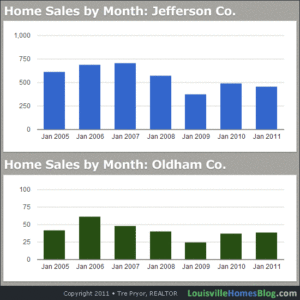Buying a home can be one of the biggest purchases of your life. Sometimes you find your dream home and can afford it. However, in most cases, your dream home is more expensive than you thought. Don’t forget about all those extra costs and fees. A smart first time homebuyer has an expert Realtor on their team to help them through the process.

That’s where first-time homebuyer programs come into the picture. They offer mortgage programs that can assist you with the minimum down payment requirements, lower interest rate charges, and many more benefits. So, what are the best national first-time homebuyer programs for you in Louisville?
Let’s jump right! This way Louisville first-time homebuyers can have the property expectations before they sign on the dotted line.
1. HomeReady Mortgage
The HomeReady Mortgage is provided by lenders backed by The Federal National Mortgage Association (Fannie Mae). The program has several benefits:
- Minimum down payment of only 3%: On a $300,000 mortgage that means a down payment of only $9,000 ($300,000 * 3%).
- Flexible Funding: Funds required for the down payment and closing costs can come from a variety of sources such as gifts, public funds, and grants with no personal funds required.
- Competitive Pricing: Lower interest rate mortgage as compared to other programs with such low-down-payment requirements.
- Lower Mortgage Insurance: As the mortgages are backed by Fannie Mae, the insurance rate is lower.
You have to meet certain requirements to qualify for a HomeReady Program:
- Income must be lower than 80% of your county’s income
- Debt-to-income (DTI) ratio < 45%
- Loan limits set by Fannie Mae
- A minimum credit score of 620
- Homeownership education course
An alternative to the HomeReady Program is the HomePossible Program offered by Freddie Mac with very similar benefits and requirements.
2. FHA Loans
FHA Loans are backed by the Federal Housing Association and provide mortgages to potential homeowners who have a lower credit score. The benefits of the plan include:
- Minimum down payment of 3.5%
- The minimum credit score of 500
- Lower mortgage insurance
Here are the requirements needed to qualify for an FHA Loan:
- Primary residence
- Debt-to-income (DTI) ratio < 43%
- FHA mortgage insurance premium
- FHA loan limits
3. VA Loans
VA loans are mortgages that are insured by The Veterans Affairs and are catered towards eligible veterans and their spouses. There are several amazing benefits to this plan:
- No minimum down payment requirement
- No minimum credit score requirement
Requirements for VA Loans:
- Eligible Veteran – Certificate of Eligibility (COE)
OR
Eligible spouse
- Pay veteran funding fee
4. USDA Loans
USDA loans are mortgages that are backed by the Department of Agriculture and are catered to individuals living in rural areas. There are several benefits:
- No minimum down payment requirement
- No minimum credit score requirement
Requirements for USDA Loans:
- Household income must be less than 115% of the median income
- Debt-to-income (DTI) ratio < 41%
- Rural town where population < 20,000 people
5. Good Neighbor Next Door Program
The Good Neighbor Next Door Program is provided by the US Department of Housing and Urban Development. It is catered toward public servants. The benefits include:
- No income requirements
- No credit requirements
- Competitive loan pricing
Requirements to meet:
- Public officials and careers such as law enforcement, teacher, firefighters, and EMTs.
- Must stay in the home for at least 3 years.

In conclusion, there are several options for first-time homebuyers to choose from regarding their mortgage. It is essential to choose the best program that best fits your needs and maximizes your gain. First-time homebuyer programs are a very good option to consider compared to other less optimal options such as using a 401k withdrawal to finance your home. Whichever program you choose, be sure to see the long-term impact on your finances, good luck!



